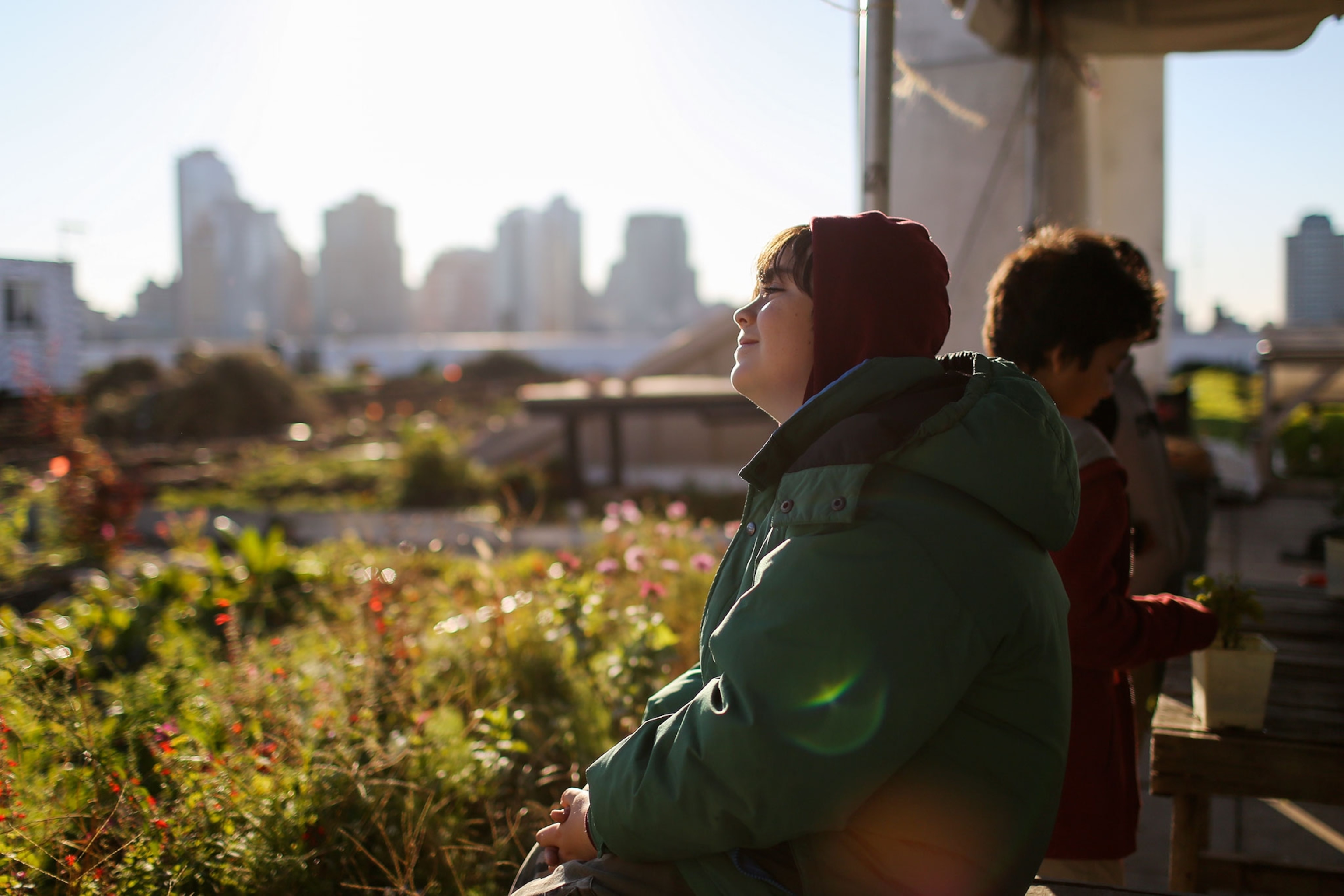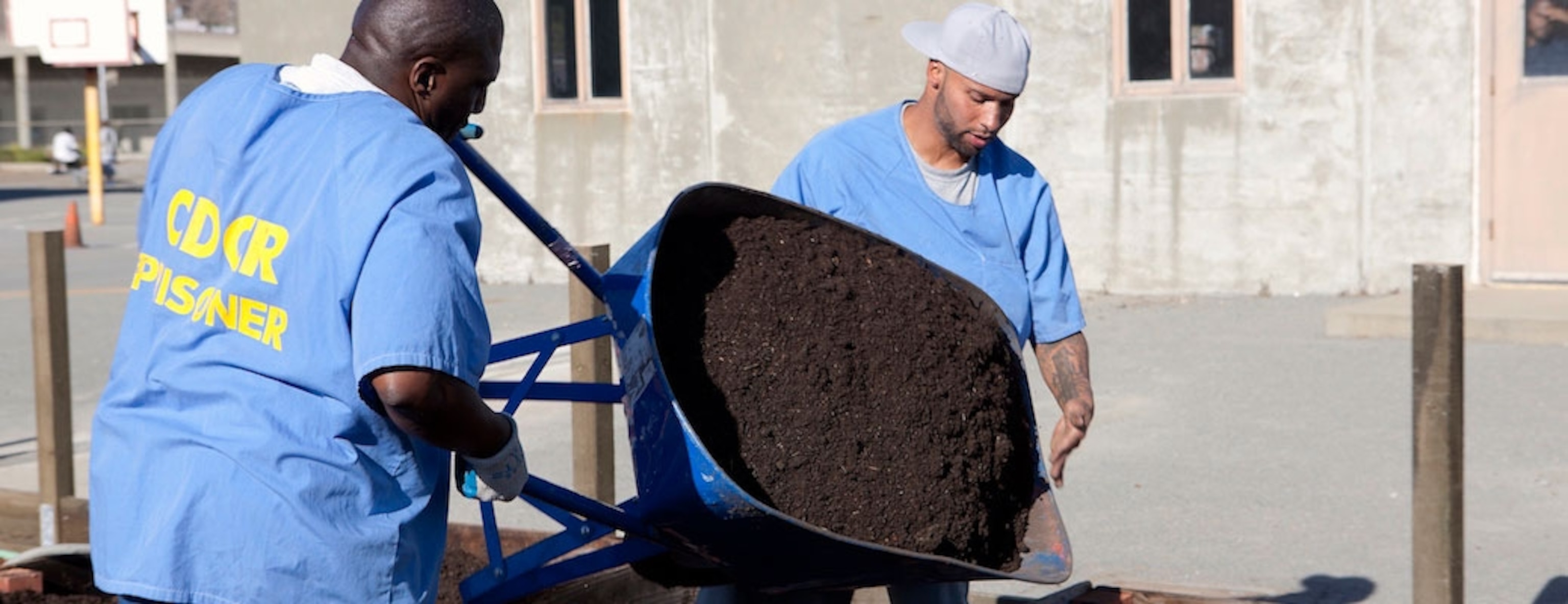
Could Gardening Offer the Key to a Happier, Healthier Life?
My grandmother used to say, “I’ve never seen an old gardener,” referring to how recreational gardening seems to keep people in high spirits, no matter what their condition. Research is showing that gardening appears to have disease-preventing, mental-enhancing superpowers, like meditation or eating tons of produce. Now, organizations are using that simple but powerful tool in creative ways.
This year, the Italian Home for Children in Boston, which serves children who have experienced extreme trauma, and in many cases have been removed from their homes, launched a program using gardening’s therapeutic power. The Italian Home had planted a tiny garden for years on its seven-acre property. The plot didn’t produce much, but kids who resided or were schooled on campus liked to just sit by the space.“We started gathering anecdotal evidence that kids had feelings of peace and calm around the garden. At the same time, we were exploring new behavioral interventions, to incorporate more collaborative problem solving,” says Jason Torres, the Italian Home’s residential director. Science backs up his observations. Research in nature-assisted therapy has shown that it reduces stress and blood pressure, improves cognitive function, and can promote cooperative behavior.
Coincidentally, new CEO Imari Jeffries wanted to reassess the Italian Home’s treatment of mental health. With a donation from The Nick Katsiroubas Foundation (Katsiroubas founded a major produce distribution company), the Italian Home Therapeutic Agriculture and Youth Leadership Program started last summer.
They built six garden beds and created a child-centered gardening program. “Everything in the garden is done by children: weeding, watering, harvesting, production,” says Torres. “Then we cooked zucchini bread, and for the holidays we have a great crop of sweet potatoes so the kids are helping our kitchen make pies.” There is an outdoor classroom, and gardening is woven through the Italian Home’s kindergarten-thorough-eighth-grade curriculum, whether kids reside at the school or not, whether they are there for 30 days or for years.
Gardening has received a lot of attention lately as a new way to provide physical activity, purpose, fresh food, and therapeutic benefits to populations in need, including those in the U.S. prison system. Insight Garden Program is a privately funded group that provides prisons with gardening services, tended by low-risk inmates. The organization reports substantial improvement in prisoner behavior at facilities where the program is allowed in.

But to go from private funding to public policy takes substantial research-proven benefits, and many analysts are working on that. There are lots of theories about why gardening has a profound positive impact: Some say dirt has microbes that enter the body through skin contact and calm the nervous system. Some say the sense of accomplishment prevents depression and anti-social behavior. But most prisons will allow only lowest-risk prisoners to participate in gardening (no violent backgrounds, gang involvement, or violations—after all, they are giving people rakes and such). So some critics argue that the prison pool is skewed.
Sander van der Linden, professor at Princeton University, studies green prison programs. When I questioned him about whether the low recidivism rates of prisoners in gardening programs were skewed by the prisoner selection system, he replied: “Even when using the most conservative estimates I could find, I still found large and significant differences—there is definitely something unique about green prison programs.” Rikers Island’s green programs, he points out, yielded a huge decrease in prisoner rearrest rates, and it has one of America’s most violent prison populations.
The attendant benefits are many. Perhaps most important, prisoners are decreasing the stress hormone cortisol and learning a new skill that provides a positive identity. As Jeffries says, “The first thing people ask after your name, is what you do for a living. I want people coming out of prison to be able to say, I’m a grower. I’m a producer.”
The Italian Home for Children wants to expand its growing program into the kitchen, too. Says Torres: “We aren’t in the business of neuroscience but better quality food creates real chemical reactions in your body—brain development and function—that are supported by quality nutrition. This isn’t just about having a better outlook on life.”
The Italian Home for Children is also hoping to expand its program with greenhouses, and it is partnering with the Boston Food Forest Coalition to create urban public food space that all citizens can participate in and benefit from–edible gardens and orchards, for example.
“We want a sea change in how people talk about food and mental health, and make the connection between mental health, poverty, food deserts, and addiction. Food is both controversial, and the most neutral way we can begin to talk about mental health,” says Torres. “Growing food together is inside of people and what we want to return to. It’s inevitable.”